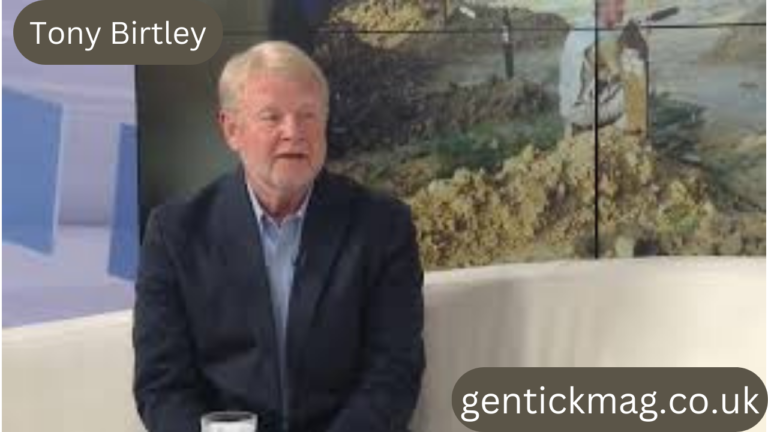Tony Birtley is a renowned journalist and war correspondent, whose career has spanned decades, covering some of the most significant events of the 20th and 21st centuries. Known for his fearless reporting and commitment to uncovering the truth, Birtley’s contributions to journalism have left an indelible mark on the industry. This article explores his life, career, notable assignments, and his impact on the field of journalism.
Early Life and Education
Tony Birtley was born and raised in the United Kingdom. From an early age, he demonstrated a keen interest in current events and storytelling. His passion for journalism was nurtured during his academic years, where he pursued studies in communication and media. His educational background laid a strong foundation for his future career, equipping him with the skills necessary to navigate the complex world of journalism.
The Beginnings of a Distinguished Career
Birtley’s career in journalism began in the late 1970s, when he joined a local newspaper as a reporter. His dedication and knack for uncovering compelling stories quickly earned him recognition. Moving into broadcast journalism, he worked for major networks like ITN and the BBC, where he honed his skills as a correspondent.
In the early stages of his career, Birtley covered domestic issues within the UK, including political events, social movements, and economic developments. However, it was his transition to international reporting that truly set him apart.
Transition to War Correspondence
Tony Birtley’s entry into war correspondence marked a turning point in his career. He covered conflicts across the globe, including the Balkans, the Middle East, Africa, and Southeast Asia. His work took him to some of the most dangerous and volatile regions, where he reported on wars, genocides, and humanitarian crises.
Coverage of the Bosnian War
One of Birtley’s most notable assignments was his coverage of the Bosnian War in the 1990s. As one of the few Western journalists on the ground during the Siege of Sarajevo, he provided critical insights into the human cost of the conflict. His reporting not only highlighted the atrocities being committed but also brought international attention to the plight of civilians caught in the crossfire.
Reporting in Afghanistan
Birtley’s work in Afghanistan during the Soviet-Afghan War and later during the U.S.-led invasion showcased his ability to navigate complex political and cultural landscapes. His interviews with key figures and his on-the-ground reporting provided audiences with a nuanced understanding of the region’s challenges.
Conflict in the Middle East
Throughout his career, Birtley extensively covered the Middle East, including the Israeli-Palestinian conflict, the Gulf War, and the Syrian Civil War. His reporting from the frontlines offered a rare glimpse into the realities of life in conflict zones and the resilience of affected communities.
Challenges and Risks of War Journalism
Working as a war correspondent comes with significant risks, and Tony Birtley’s career is no exception. He faced numerous challenges, including threats to his safety, limited access to resources, and the emotional toll of witnessing human suffering. Despite these obstacles, Birtley remained committed to his mission of delivering accurate and impactful reporting.
Near-Death Experiences
Birtley’s assignments often placed him in life-threatening situations. From dodging sniper fire in Sarajevo to navigating minefields in Africa, his experiences underscore the perilous nature of war journalism. These incidents highlight his bravery and dedication to his craft.
Ethical Dilemmas
Covering conflict zones also presents ethical challenges. Birtley often grappled with questions about journalistic impartiality, the potential impact of his reporting on affected communities, and the responsibility to balance truth-telling with compassion.
Awards and Recognition
Tony Birtley’s contributions to journalism have been widely recognized. Over the years, he has received numerous awards for his work, including accolades for his coverage of the Bosnian War and his reporting in Afghanistan. These honors reflect his commitment to excellence and his role as a trailblazer in the field of war correspondence.
Legacy in Journalism
As a journalist, Birtley has inspired countless aspiring reporters to pursue careers in investigative and war journalism. His dedication to uncovering the truth and giving a voice to the voiceless serves as a model for integrity and courage in the profession.
Influence on Modern Journalism
Birtley’s approach to storytelling—combining factual accuracy with compelling narratives—has influenced how modern journalists cover conflicts and humanitarian issues. His work underscores the importance of providing context and humanizing the stories behind the headlines.
Mentorship and Advocacy
In addition to his reporting, Birtley has been involved in mentoring young journalists and advocating for press freedom. He has spoken at conferences and workshops, sharing his experiences and insights with the next generation of journalists.
Life Beyond Journalism
While much of Tony Birtley’s life has been dedicated to journalism, he has also pursued other interests and activities. His experiences have shaped his perspectives on global issues, and he continues to contribute to discussions on media ethics, conflict resolution, and international relations.
Writing and Public Speaking
Birtley has authored articles and essays reflecting on his career and the evolving landscape of journalism. His public speaking engagements often focus on the challenges and responsibilities of reporting in conflict zones.
Philanthropic Endeavors
In recent years, Birtley has been involved in philanthropic efforts, particularly those aimed at supporting communities affected by conflict. His work in this area demonstrates his commitment to making a positive impact beyond the newsroom.
Conclusion
Tony Birtley’s career is a testament to the power of journalism to inform, inspire, and effect change. Through his fearless reporting and unwavering dedication, he has shed light on some of the world’s most pressing issues, bringing the stories of marginalized and affected communities to global attention. His legacy as a journalist and advocate for truth and justice will undoubtedly continue to inspire future generations.
